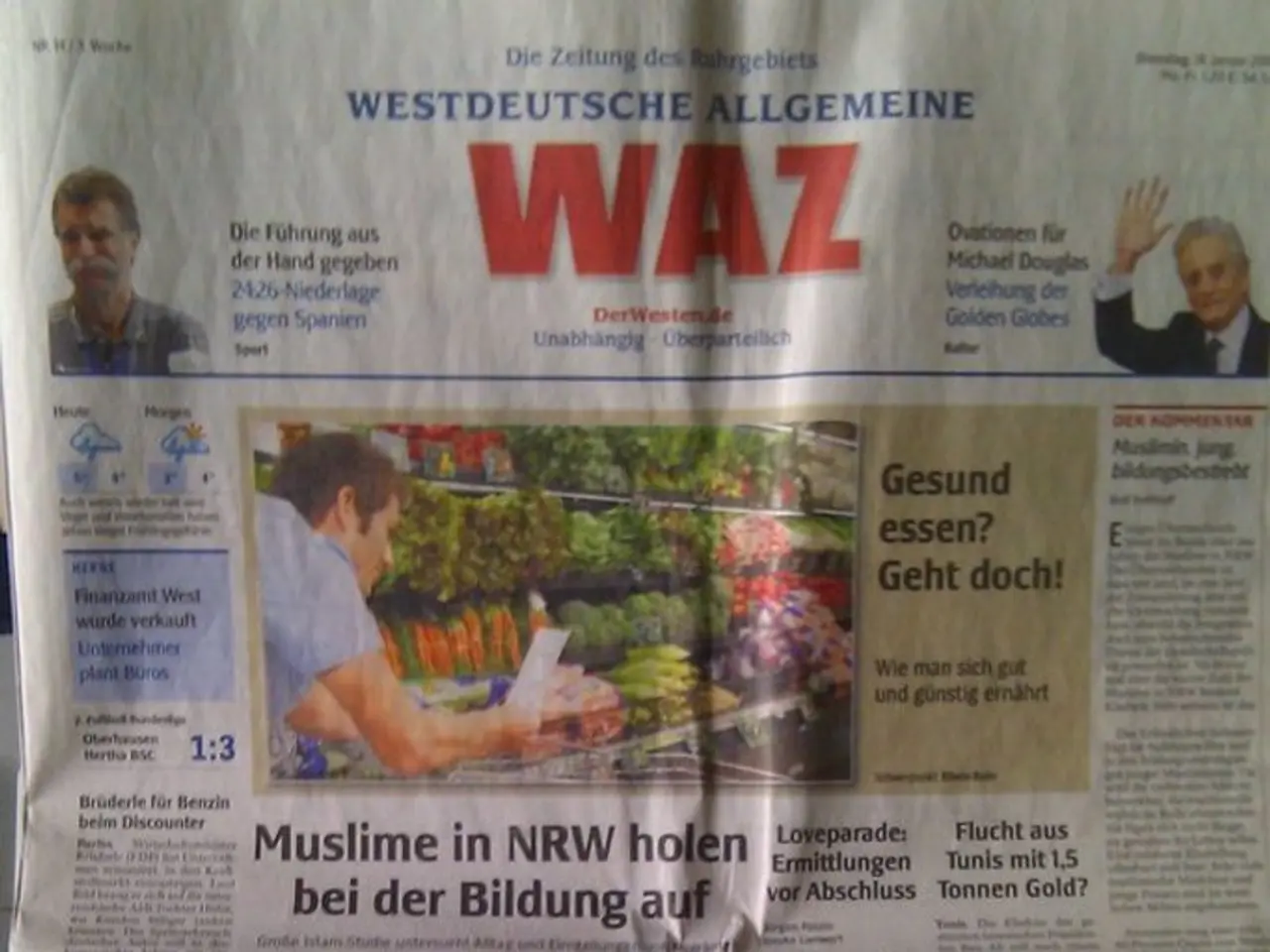Federal authorities plan to scrutinize social media for signs of antisemitism, with a particular focus on immigrants expressing support for Palestine, according to the Department of Homeland Security.
The United States Department of Homeland Security (DHS) has implemented a new policy that requires immigrants to provide their social media handles on multiple immigration forms, expanding the government's ability to surveil and ideologically vet applicants at various stages[1][2].
This policy includes expansive monitoring of social media accounts of immigrants and visa applicants, explicitly screening for "antisemitic activity" along with other ideological content such as political activism and hostility toward the U.S[1][2][5]. The State Department has mandated consular officers worldwide to review social media accounts, requiring applicants — including student visa categories (F, M, J visas) — to make all their accounts public for exhaustive scans checking for “antisemitic activities,” among other categories of concern[5].
The social media vetting programs now extend to reviewing the social media presence not only of applicants but also of their U.S. citizen family members, vastly increasing the scope of monitoring[1]. This expanded surveillance uses artificial intelligence tools and databases to identify potentially derogatory information. It can result in visa denials or revocations based on online content, including ambiguous definitions of antisemitism[1][3][5].
Civil rights organizations, such as UnidosUS and Asian Americans Advancing Justice, have protested this policy. They argue it represents government overreach into privacy and free speech rights, disproportionately harms immigrant communities, and risks a chilling effect on online expression[4].
The administration defends the policy as necessary for national security, but critics highlight a lack of evidence that such broad surveillance improves security, warning it threatens due process, constitutional protections, and democratic norms[3][4].
Meanwhile, the situation in Gaza continues to deteriorate. At least 23 people, including eight children, were killed in a recent airstrike in Gaza City[6]. Markets in Gaza are empty, bakeries are closed, and food is running out due to Israel's total blockade on food and supplies[7]. Immigrants pointing out the dire situation in Gaza could face consequences, with reports of people being denied entry to the U.S., sent to ICE concentration camps, or facing worse consequences[8].
One such case is that of Rumeysa Ozturk, a PhD student at Tufts University, who was abducted by masked agents of the state near Boston and is currently being detained in an ICE detention facility in Louisiana[9]. The government has been accused of purging the United States of immigrants who criticize the actions of the Israeli government in Gaza[8].
In a statement, DHS Assistant Secretary for Public Affairs Tricia McLaughlin stated: "There is no room in the United States for the rest of the world's terrorist sympathizers." However, the policy's broad definitions and the lack of evidence supporting its effectiveness raise concerns about due process and free expression[3][4].
References:
- The Intercept
- The Washington Post
- ACLU
- NPR
- The New York Times
- BBC News
- Al Jazeera
- The Guardian
- The Boston Globe
- The future of social media privacy and free speech is under unprecedented scrutiny in the United States, with a new policy requiring immigrants to disclose their social media handles, raising concerns about government overreach and potential ideological vetting.
- Critics argue that the policy, implemented by the Department of Homeland Security (DHS), extends beyond national security, potentially impacting casino-personalities, policy-and-legislation advocates, and general-news commentators, among others, leading to a chilling effect on online expression.
- Meanwhile, war-and-conflicts continue to escalate around the globe, such as the crisis in Gaza, where recent airstrikes have resulted in loss of life and food shortages. Yet, speaking out about such issues may result in consequences, with reports of immigrants facing denial of entry, detention, or worse.
- As the policy unfolds, the personal stories of those affected emerge, such as Rumeysa Ozturk, a PhD student at Tufts University who was detained by ICE agents for criticizing the Israeli government's actions in Gaza.
- The DHS defends the policy as necessary for national security, but rising questions about due process, constitutional protections, and democratic norms suggest a broader conversation about the interplay of tech, technology, politics, crime-and-justice, casino-and-gambling, and war-and-conflicts in shaping U.S. immigration policy.




